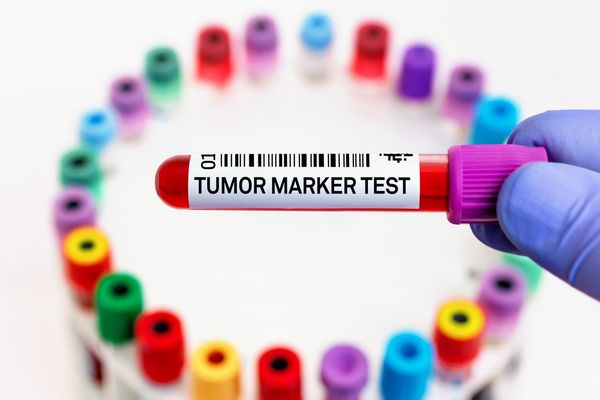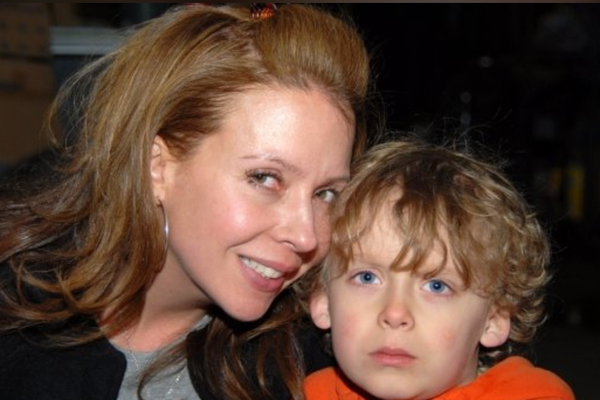People of Ashkenazi Jewish descent are at increased risk for a group of rare disorders compared to the general population. Many of these diseases are severe and can cause early death; however, some can be treated to extend life and ease symptoms. Pregnancy screening tests such as chorionic villus sampling (CVS) or amniocentesis can catch some of these diseases. Health care professionals usually encourage these tests if one of both parents are carriers of a genetic disease.
Here's an overview of the most common Ashkenazi Jewish genetic diseases:
Canavan disease is a neurodegenerative disease characterized by lack of the aspartoacylase enzyme. This enzyme is critical for normal central nervous system development and function. The disease progresses similarly to Tay-Sachs disease, and affected children usually die by age five. Some doctors are not aware of the risk for Canavan disease. The carrier rate is about one in 55 among people of Ashkenazi Jewish descent.
Congenital deafness can be caused by one of two changes in a gene called Connexin 26. About one in 21 individuals of Ashkenazi Jewish descent has one of the two mutations.
Cystic fibrosis is characterized by the production of thick mucus, which leads to pulmonary and digestive problems. The disease results from a mutated CFTR gene (cystic fibrosis transmembrane regulator). About one in 25 Caucasian Americans carries a mutation in this gene. Cystic fibrosis occurs most frequently in Caucasians of northern European origin. Because there are many possible disease-causing mutations in the gene, most tests are only about 80 to 85 percent accurate (and this may be even lower in some ethnic groups). Tests for Ashkenazi Jewish carriers are about 97 percent accurate, however, because there are three specific mutations for cystic fibrosis in this population. The carrier rate in people of Ashkenazi Jewish descent is 1 in 29.
Gaucher disease Type I is a disorder caused by a lack of glucocerebrosidase, an enzyme that helps clear glucocerebroside from a person's cells. The condition can lead to slower growth in children, bone degeneration, anemia, enlargement of the spleen and liver and thrombocytopenia (low platelet count). A replacement enzyme treatment is available, but the product is expensive—up to $300,000 per patient per year. The carrier rate among the Ashkenazi is between one in 10 and one in 15. Not everyone who inherits two Gaucher disease mutations develops the disease or is aware of it.
Tay-Sachs disease is characterized by absence of hexosaminidase A, an enzyme that breaks down GM2-ganglioside. Without this enzyme, fat builds up in the central nervous system, leading to neurological degeneration. Afflicted children develop symptoms at around six months of age, and the disease is usually fatal in children within a few years. (Adult-onset forms of Tay-Sachs disease are rarer and less severe.) Carrier screening can be done with a blood sample looking at DNA mutations or decreased enzyme levels, (carriers have reduced enzyme levels). The most accurate test for Tay-Sachs disease is one that looks for both the enzyme level and a mutation . The carrier rate among the Ashkenazi Jewish population is about one in 27; the rate is about one in 250 among French Canadians, Cajuns and Irish.
Other conditions with a higher carrier rate in the Ashkenazi Jewish population for which testing is available include:
- Bloom syndrome, a chromosome breakage disorder. Symptoms include slowed growth, skin discoloration and characteristic facial features. The disease often leads to cancer and sometimes, mental retardation. The carrier rate among Ashkenazis is about one in 100.
- Familial dysautonomia, a disease that causes the autonomic and sensory nervous system to malfunction. Symptoms include the absence of tears, taste buds and deep-tendon reflexes. The gene was recently identified, and carrier screening is available to the general population. That carrier rate is about one in 30.
- Fanconi anemia, a DNA repair disorder that leads to a range of symptoms including thumb and arm deformities, skeletal abnormalities, kidney problems, skin discoloration, small head or eyes, mental retardation or learning disabilities, gastrointestinal difficulties, small reproductive organs in males and defects in tissues separating heart chambers. At least five genes are implicated in Fanconi anemia—and it only takes one of them going awry to cause the disease. Type C accounts for most cases of FA in the Ashkenazi Jewish population. Commercial testing is available for this mutation. The carrier rate among the Ashkenazi Jewish population is about one in 89.
- Niemann-Pick disease, a metabolic disorder caused by insufficient quantities of sphingomyelinase. The result is accumulation of the fatty substance sphingomyelin in the spleen, liver, lungs, bone marrow and, in some patients, the brain. Patients with Type A—predominantly people of Ashkenazi Jewish descent—rarely live beyond 18 months. Commercial carrier testing is available for Type A. The carrier rate among the Ashkenazi population is about one in 90.
- Mucolipidosis Type IV, a rare autosomal recessive disease with a carrier rate of about one in 120 among Ashkenazi Jews. It is a progressive neurological disorder with symptoms beginning in the first year of life. Survival is rare, and children who suffer from it have severe developmental delays. There is no treatment available.
- Torsion dystonia, a muscle-control disorder with an autosomal dominant inheritance pattern, which means it takes only one defective gene to create the possibility of the disease. But only 30 percent of individuals who inherit the mutation develop the disease. A genetic test can determine whether a person of Ashkenazi Jewish descent has the mutation. Though the frequency of the gene is still uncertain, it occurs in an estimated one in 6,000 to one in 2,000 Ashkenazi Jewish individuals.







